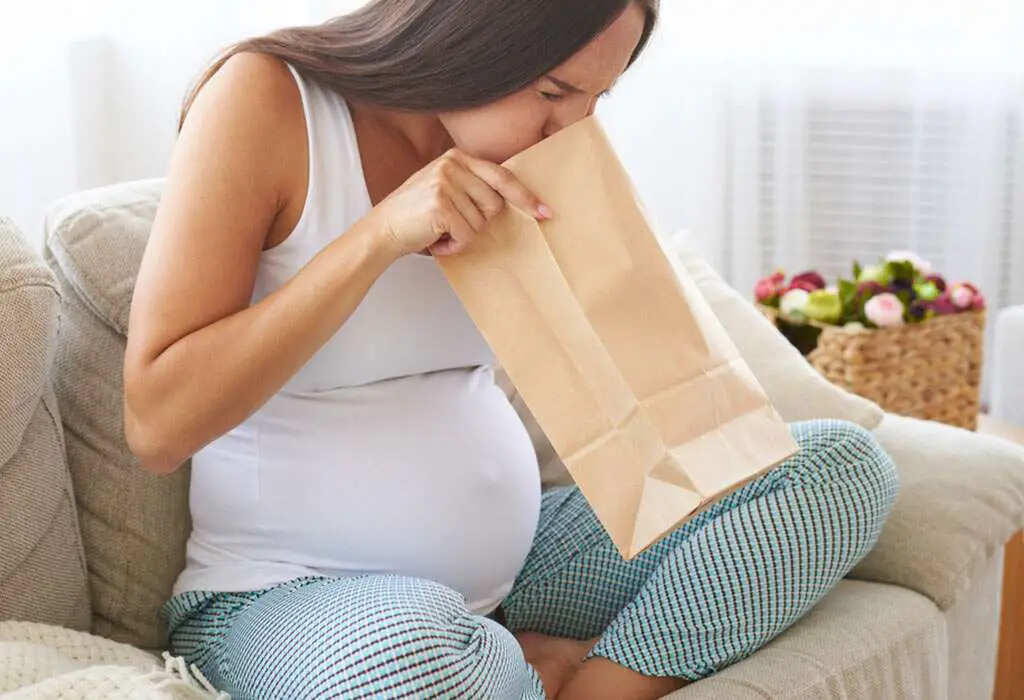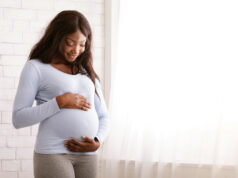Pregnancy is one of the most exciting journeys that most women wish to experience at least once in their lifetime. The thrill and joy of bringing a little one-another life into this world can be compared to none.
Despite the fun and excitement that pregnancy brings, there are many rules that a woman as an intending mother will need to abide by, not only for her sake but for the sake of the little one inside her.
One of the essential visits a pregnant woman would need to undergo is meeting up with her doctor regularly, and this is usually termed as her antenatal visit. During her first month of pregnancy, the doctor would probably have given a rundown of foods that she is meant to avoid during pregnancy.
Some foods like sushi, raw meat, Delhi meat as well as pasteurized milk are some of the foods you, may have been asked to give up on. The reason is not so far-fetched. Most of these foods are dangerous to you and more especially to your baby due to the number of bacteria and other microorganisms they can house.
One of these microorganisms that most of these foods can house is known as Listeria. Listeria monocytogenes, often known as Listeria, is the bacteria that is mainly responsible for a particular infection known as listeriosis (or Listeria during pregnancy).
Listeria monocytogenes is a common bacteria that is often found in the soil, dust, water, processed food, raw meat, animal dung and so on.
Most cases of the infection caused by Listeria (listeriosis) are often mild cases, however, when they begin to affect pregnant woman(Listeria during pregnancy), these cases can fast spiral down from being mild to increasingly major and life-threatening cases.
Listeria during pregnancy doesn’t only affect the pregnant mother but also the baby that is in the womb. If the mother is infected during pregnancy, and the infection gets worse, it can cause the mother to have a miscarriage or worse, lead to stillbirth.
If a newly born infant has Listeria, it can lead to pneumonia and eventual death. This is the reason why your doctor tells you to stop eating certain foods as well as undergo other precautions.
In other to avoid the infestation of Listeria during pregnancy, pregnant women are usually advised to stop eating foods that contain hotdogs, deli meats as well as soft cheeses as this foods put them at a higher risk of developing listeriosis.
According to research, listeriosis is a common infection among pregnant women with statistical data of more than 30%. This means that, in about 100 pregnant women in the U.S, 30% of them are likely to develop listeria during pregnancy, and this number is quite alarming.
What is worse is that most pregnant women don’t usually exhibit symptoms from the infection. However, the foetus ends up taking the brunt of the ordeal because they are usually highly susceptible to bacteria. This infection has the ability to cross the placenta barrier and as such cause serious fatalities to the baby.
Causes of Listeria during pregnancy
Listeria during pregnancy (generally known as listeriosis) is a bacterial infection that is caused by the bacteria known as Listeria monocytogenes. This bacteria is often found in soil, water as well as within animal waste. You probably might be wondering how you can get contaminated without having direct contact with these sources.
The vegetables you eat are grown within the soil, and once these bacteria contaminate the soil, your vegetables can also get infected. Animals can also house this bacteria, and they stay within the flesh of animals and as such, when you undercook meats you stand the risk of contracting this infection.
Dairy products which are gotten from animals that are unpasteurized or are not properly and adequately pasteurized can also harbour this bacteria. As such, if you drink such products, you can become infected with these bacteria.
Animals are mostly the carriers of this bacteria, but they hardly get sick from this disease. In other words, animals are not affected by listeriosis. It is important to note that the bacteria Listeria monocytogenes can be killed via the use of very high temperatures.
This means that cooking our food properly and adequate pasteurization(which is the process of heating a liquid to a high temperature in order to kill any microorganisms present) can kill this bacteria and as such reduce the occurrences of Listeria during pregnancy.
Listeria is one unique type of bacteria. This is because, although most bacteria can’t survive in cold environments, however, Listeria can survive in cold temperatures such as the one present in your refrigerator.
Hence, putting foods in the freezer without properly cooking them can cause you to become infected with Listeria. Generally, the following foods can cause a woman to develop Listeria during pregnancy.
They include:
- Undercooked meats, poultry and fish
- Unpasteurized dairy foods such as milk, yoghurt and so on
- Cheese products
- Foods that are cooked packed or served in unhygienic places
- Foods and vegetables which have been infected but aren’t properly cooked before consumption.
Symptoms of Listeria during pregnancy
As said earlier, most times when listeriosis occurs especially in people who aren’t pregnant, these people hardly show any symptoms. However, in pregnant women, there are specific symptoms that you must look out for.
They include;
- Fever of about 100.6°F
- Cold
- Chills
- Headaches
- Muscle pains
- Vomiting
- Nausea
- Confusion
- Pain in the neck
- Stiff neck
- Diarrhoea
These symptoms usually occur within two days to two months of initial exposure to the Listeria bacterium. If you are pregnant and you are already experiencing some or all of these signs, it is important that you report to your health care provider immediately.
In rare cases, a pregnant woman may not show any signs or feel very sick; however, although she doesn’t feel any sign doesn’t mean that the Listeria bacterium isn’t present within her body system and this simply means that she can pass on the bacteria to her child even without her knowledge.
Risk factors
Although, pregnancy puts most women at a higher risk of developing listeriosis, however, women who have any of the following conditions and are also pregnant stand even higher chances of becoming infected with Listeria during pregnancy.
These conditions include;
- Problems from the excessive use of steroids.
- Women who had diabetes before getting pregnant
- Women with compromised immune systems as a result of some immune diseases such as the Human Immunodeficiency Virus (HIV)
- Women who have other bacterial, viral or fungal infections such as HIV
- Women who had undergone splenectomy before they became pregnant
- The use of certain medications especially those that can suppress or weaken your immune system example chemotherapy drugs
- Women who had cancer before they became pregnant.
- Alcoholism
It is important to note that according to research, Hispanic healthy women are more at risk of developing this infection than any other race.
Diagnosis
Listeria during pregnancy is one infection that can be extremely difficult to diagnose. Since the symptoms of listeriosis are like that of fever, some women hardly see or detect anything wrong until it is too late.
If you are pregnant and you are showing symptoms of you having the flu, you must visit your doctor and avoid self-medication. If you suspect that you do not have a fever, and you visit your doctor, your doctor will ask you to the clinical laboratory or a blood confirmation test.
Your doctor may even ask you about the type of symptoms and the kind of food you have been eating. Sometimes, the test results of your blood culture may take sometime before it comes. Hence, if your symptoms are severe, your doctors may begin treatment to resolve listeria during pregnancy even before the results come in.
Treatments

Treatment of Listeria during pregnancy is often done by administering high doses of antibiotics to help kill the bacterium.
Generally, your doctors may prescribe penicillin, however, if you are considered allergic to penicillin, then other antibiotics such as trimetroprim and sulfamethoxazole will be administered instead.
Complications
Once you are infected with Listeria during pregnancy, you are at a higher risk of developing certain complications if treatment is not administered correctly and on time.
Some of these complications include:
- Miscarriage
- Stillbirth
- Premature delivery
- Death of the foetus
- Delivery of an infant with severely low-birth weight
- Meningitis caused by bacteria which is often characterized by the swelling of the membranes that cover the brain.
- Septicemia – this is a blood infection.
Precautions to undertake to prevent Listeria during pregnancy
If you know you are pregnant and have a weakened immune system, then you must try to ensure that you take extra precautions, especially when eating the following foods:
Cheese
Once you become pregnant, you must ensure that you don’t eat soft cheeses such as brie, feta, blue cheese and so on. Also, you must ensure that you avoid Mexican cheese such as queso Blanco, queso Franco and so on.
Hot dogs and Meats
You must ensure that you avoid eating hot dogs and meats unless they have been reheated and you take them steaming hot. Also, make sure that you keep the fluid found in hog dogs away from other utensils and surfaces as it is possible for Listeria to dwell in these fluids.
Likewise, you must ensure that you wash your hands properly after handling these foods as well as clean all surfaces thoroughly.
Meat spreads
When pregnant, don’t eat meat spreads that are refrigerated, canned or stored in other containers without refrigerating them. This is in order to avoid you developing Listeria during pregnancy.
Raw vegetables
Never eat your vegetables raw. Ensure that you cook them thoroughly under sufficient heat in order to kill any microorganism that dwells there. When you do this, you reduce your chances of being infected with Listeria during your pregnancy.













